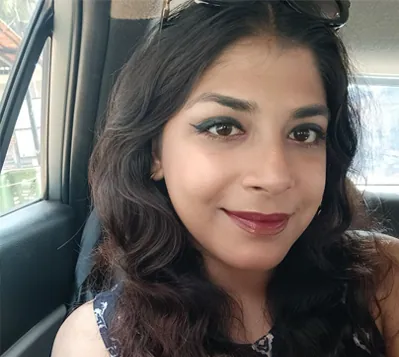- Types of Organ Transplant
- Cost of Organ Transplant in India
- Health Plans Coverage

Simran has over 3 years of experience in content marketing, insurance, and healthcare sectors. Her motto to make health and term insurance simple for our readers has proven to make insurance lingos simple and easy to understand by our readers.
Reviewed By:

Anchita has over 6 years of experience in content marketing, insurance, and healthcare sectors. Her motto to make health and term insurance simple for our readers has proven to make insurance lingos simple and easy to understand by our readers.
Updated on Aug 27, 2024 5 min read




Health Insurance Cover for Organ Transplant
Did you know, according to the Health Resources and Services Administration (HRSA), 17 people die each day waiting for an organ transplant? 1 donor can save around 8 lives and enhance over 75 more.
You might be wondering why I am talking about this here. Well, imagine, doctor, saying ’Multiple Organ Failure’- this one phrase has the power of making you experience "the ground shaking".
For that matter, even any one organ failure is a serious concern. Medically, it has only one treatment solution, and that is an organ transplant. But, organ transplant is not an easy task. It comes with a lot of challenges.
Troubles that can arise before the process of organ transplant
- Lack of understanding about organ transplantation.
- Due to many misconceptions and myths people do not come forward to become a donor.
- There is a huge concern regarding organ allocation and ensuring a fair distribution among patients.
- The infrastructure of organ donation and transplantation may be limited by some means.
- High cost of organ donor and organ receiver including the cost of surgery and hospitalisation.
FYI- Organ donation is something that can be very small for you but very big for overall societal development. To know more about organ donation you can visit here.
Types of organ transplantation and their cost in India
-
Heart Transplant
The most complex surgery, in which the heart of a deceased donor who has been declared brain dead is transplanted to the patient whose heart can no longer function adequately. The surgery is quite a complex open-heart procedure, so only expert surgeons can perform this surgery.
- Hospitalisation required- Less than 1 to 3 weeks
- Type of donor- Deceased donor who died less than 24 hours ago due to brain death
- Approximate cost- Approx. INR 25 Lakh
-
Lung Transplant
The surgical procedure is done to replace one or both diseased lungs. It is a life-saving option for people who are dealing with advanced lung diseases that significantly impair their breathing and quality of life. Similar to a heart transplant, a team of specialists will assess the overall health of the patients.
- Hospitalisation required- Less than 2 to 4 weeks
- Type of donor- Deceased donor who died 24 to 48 days ago.
- Approximate cost- INR 25 to 30 Lakh.
-
Liver Transplant
Another major surgical procedure that is a lifesaving option for individuals with end-stage liver disease or acute liver failure when other treatments are not successful. A liver surgeon is an expert in their domain, it is a complex operation that lasts for a few hours.
- Hospitalisation required- Less than 14 days.
- Type of donor- It can be a living donor kept for 2 to 7 days, or it can be a deceased donor who died 24 to 48 days ago.
- Approximate cost- INR 22 Lakh to 28 Lakh
-
Eye Transplant
A surgical procedure where damaged or diseased corneal tissue in the eye is replaced with the healthy tissue of a deceased donor. Careful matching processes make sure that the donor’s eye should be compatible enough to minimise the rejection risks.
- Hospitalisation required- 1 or 2 nights
- Type of donor- Deceased donor
- Approximately INR 70 Thousand 1.5 Lakh.
POV- These are some major and common types of transplants in India. However, there are some rare types of transplants, that might be required. Such as:
- Pancreas Transplant
- Intestine Transplant
- Hands transplant
- Hair transplant
- And even a face transplant!
Now, the advancement in technology has made everything possible. You say a problem, there is a solution for everything. But, not affordable for all.
Health Insurance for Organ Transplant
Today, many popular health insurance companies offer comprehensive plans that cover organ donation costs and related expenses. Some of these popular health insurance plans are:
| Health Insurance Plans | Entry Age | Coverage |
| Care Plus | 5 years | Covers recipient and donor expenses if opted. |
| Care Supreme | 18 years | Covers recipient and donor if opted |
| HDFC Optima Restore | 18 years | Only covers the recipient |
| HDFC ERGO Optima Secure | 18 years | Covers only the recipient. |
| Reliance Health Infinity More Time | 18 years | Covers only the recipient. |
| Star Women Care | 18 years | Covers the recipient and donor. |
POV- Many more plans cover organ donation. Get in touch with our expert advisors at PolicyX to know more.
Tips to Choose the Best Health Insurance Plan for Organ Donation
- Check the sum insured which will cover the charges of organ transplant.
- Consider factors like the type of organ transplant, current medical costs, and inflation rate when selecting the sum insured.
- Carefully, review the policy inclusions to make sure that they cover surgery costs, hospitalisation, and surgeon costs.
- Opt for the plan that has a wide network of hospitals in your area that are specialised in organ transplants.
- Your plan should cover the donor’s expenses also along with the recipient’s.
- Understand the claim settlement process of the company. A hassle-free claim process is very important during critical situations like organ transplants.
POV- Your health insurance plan should be the stress buster, not the stress giver.
Bottom Line
The advancements in technology have made organ transplants a life-saving procedure. But, it can be very expensive. Many people die because of organ failure in India. Fortunately, health insurance plans can help ease the financial burden and offer access to quality healthcar. By considering factors like coverage details, sum insured, and network hospitals, you can choose a plan that best suits your needs for organ transplantation. Remember, being an organ donor is a noble act that can save lives. By discussing organ donation with your family and registering as a donor, you can contribute to a brighter future for those in need.
Let’s all work together to raise awareness about organ donation and make these life-saving transplants more accessible.
Consult for Personalized Insurance Advice

But how does it work?
Schedule a call with India’s number 1 trusted advisor with a 4.5+ rating on Google. We are not your average insurance agents. Our advisors are experts in their insurance knowledge and will give you the right information at the right time. The service is free of cost! Don’t worry, we won’t spam as we value your time.
Health Insurer Network Hospitals
Health Insurance Cover for Organ Transplant: FAQ’s
1. Does my health insurance cover organ transplants?
No, not all health insurance plans cover organ transplants.
2. How much does health insurance for organ transplants cost?
Health insurance premiums can vary depending on several factors like your age, medical history, location, and the level of coverage you choose. However, plans offering transplant coverage typically come with higher premiums compared to basic health insurance plans.
3. Is there a waiting period for organ transplants covered by insurance?
Yes, some health insurance plans may have a waiting period before coverage for organ transplants kicks in. This waiting period can vary depending on the plan and the type of organ transplant.
4. What happens if my health insurance denies a claim for an organ transplant?
If your insurance company denies a claim related to an organ transplant, you have the right to appeal the decision. The appeals process typically involves submitting additional documentation to support your claim. It’s advisable to consult with the insurance company or a healthcare advocate familiar with the appeals process.
5. Can I get health insurance if I have a pre-existing medical condition that might require an organ transplant in the future?
Pre-existing conditions can make it difficult to get health insurance, especially plans with transplant coverage. However, some plans may offer coverage with exclusions or higher premiums. It’s important to be honest about your medical history when applying for insurance.
Health Insurance Companies
Know More About Health Insurance Companies
Share your Valuable Feedback
0
Rated by 0 customers
Was the Information Helpful?
Select Your Rating
We would like to hear from you
Let us know about your experience or any feedback that might help us serve you better in future.


Written By: Simran Saxena
Simran has over 3 years of experience in content marketing, insurance, and healthcare sectors. Her motto to make health and term insurance simple for our readers has proven to make insurance lingos simple and easy to understand by our readers.
1154-1723614634.webp)





 Reviewed By: Anchita Bhattacharyya
Reviewed By: Anchita Bhattacharyya

















Do you have any thoughts you’d like to share?